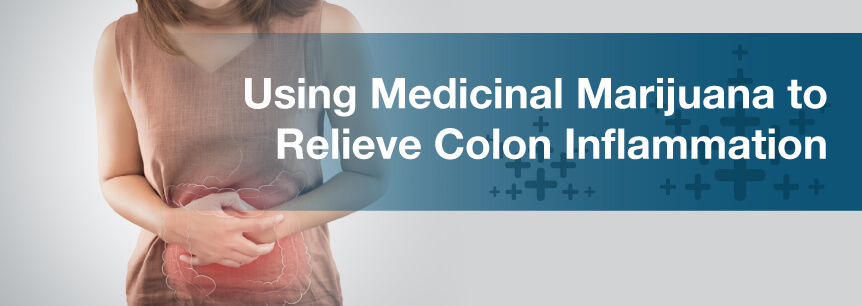
Inflammation is the key trait of ulcerative colitis. When the lining of your colon and rectum become inflamed, it impacts your stools, how often you go to the bathroom and your energy levels. Even though ulcerative colitis tends to come and go in episodes, these periods can be very uncomfortable.
Medications that treat ulcerative colitis-related inflammation can cause severe side effects or be unsuitable for frequent, long-term use. Since inflammation is linked to the immune system, these medicines can reduce your ability to fight off diseases. To avoid these drawbacks, savvy patients use medical marijuana to lower inflammation safely.
Inflammation is an immune response that happens when your body sends chemicals and white blood cells to protect you from a foreign substance. But, sometimes your immune system confuses healthy cells with invaders. The inflammation damages the tissue in the area where it sends the white blood cells and chemicals. Disorders that cause unneeded inflammation are called autoimmune diseases.
Since you get ulcerative colitis when your rectum and bowels become inflamed, we consider it an autoimmune disease. Scientists don’t know the cause of ulcerative colitis for sure. It could result from the immune system mistaking healthy bacteria for pathogens, or it’s possible that the immune system doesn’t stop creating inflammation after an infection.
As you can see, the immune system triggers inflammatory conditions like ulcerative colitis. So, doctors must suppress the immune mechanisms behind inflammation to reduce this symptom. Fortunately, there is an unexpected solution to an overactive immune system.
You may have heard of marijuana medicine’s ability to relieve pain. Even though we don’t talk as much about it, marijuana also works naturally with your body’s systems to reduce inflammation.
Everybody has an endocannabinoid system (ECS) that specifically handles the components in marijuana, or cannabinoids. In fact, our bodies already create our own cannabinoids that resemble the ones we find in cannabis. The ECS consists of:
We have two kinds of receptors — the CB1 and CB2 receptors. While you can find CB1 receptors in your central nervous system, CB2 receptors are located on immune system cells. When medical marijuana activates the CB2 receptor, the connected cells release fewer cytokines, which are substances that transmit inflammatory signals to the rest of your body. The lower number of cytokines lets you experience less inflammation.
A few marijuana components activate the CB2 receptor in particular. The component beta-caryophyllene, which we can find in cannabis and other plants, targets only the CB2 receptor. THC activates both kinds of receptors, and while CBD doesn’t activate receptors, it has been shown to reduce inflammation, as well.
If you have little knowledge about cannabis medicine, you may not know you can take it in ways other than smoking it. In fact, medical marijuana gives you many more options than standard medicine does. Every state allows different products, but you will typically have a selection including anything from edibles to topicals. You can sometimes get medicinal cannabis in the form of pills, as well, if you want to stick to what you’re used to.
Beginning the medical marijuana process is a team effort. You’ll first need to book an appointment with a cannabis-positive doctor to get a recommendation. Once you are accepted by your state’s medicinal cannabis program, you can visit a dispensary to purchase medicine. Use our database to find experts near you today.